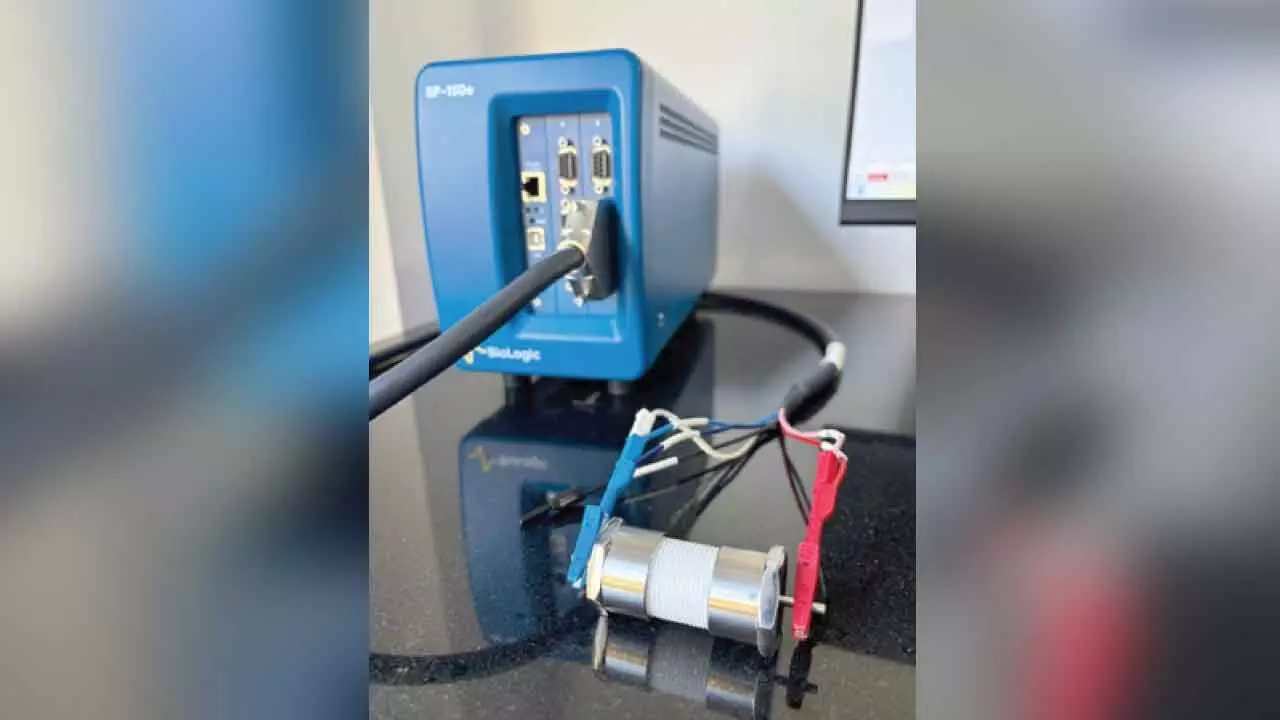Flexible supercapacitor to power wearables, EVs, cut dependence on imported batteries
Going beyond lab-scale material development, the team built a working prototype of the flexible supercapacitor, demonstrating its practical viability
Flexible supercapacitor to power wearables, EVs, cut dependence on imported batteries

New Delhi: Researchers at Nagaland University have developed a flexible supercapacitor device capable of powering next-generation wearable electronics, electric vehicles (EVs), and renewable energy systems, a breakthrough that has the potential to transform energy storage technologies in the country.
The research supported by the Indian Institute of Science (IISc) Bangalore and funded by the Anusandhan National Research Foundation (ANRF), could help India reduce dependence on imported batteries while boosting clean energy and storage technologies under the vision of Atmanirbhar Bharat, said the researchers. Going beyond lab-scale material development, the team built a working prototype of the flexible supercapacitor, demonstrating its practical viability.
While the immediate applications include health-monitoring devices, IoT gadgets, and robotics, the innovation also holds potential for electric vehicles, the team said, in the paper published in the peer-reviewed scientific journal RSC Advances.
Flexible supercapacitors like these could improve regenerative braking systems, provide quick acceleration boosts, and extend battery lifespans.
"The device combines flexibility, high energy storage, and durability, which are critical for future portable and wearable technologies. The study is the first to compare tungsten, vanadium, and cobalt doping in molybdenum diselenide for energy storage. Among them, cobalt proved most effective,” said Dr Vijeth H, Assistant Professor, Department of Physics, Nagaland University.
“The research strengthens India’s path toward sustainable and self-reliant energy solutions,” Vijeth added.
The device, created at the Advanced Materials for Device Applications (AMDA) Research Laboratory in Lumami campus of the University, uses cobalt-doped molybdenum diselenide, a cutting-edge two-dimensional (2D) material.

